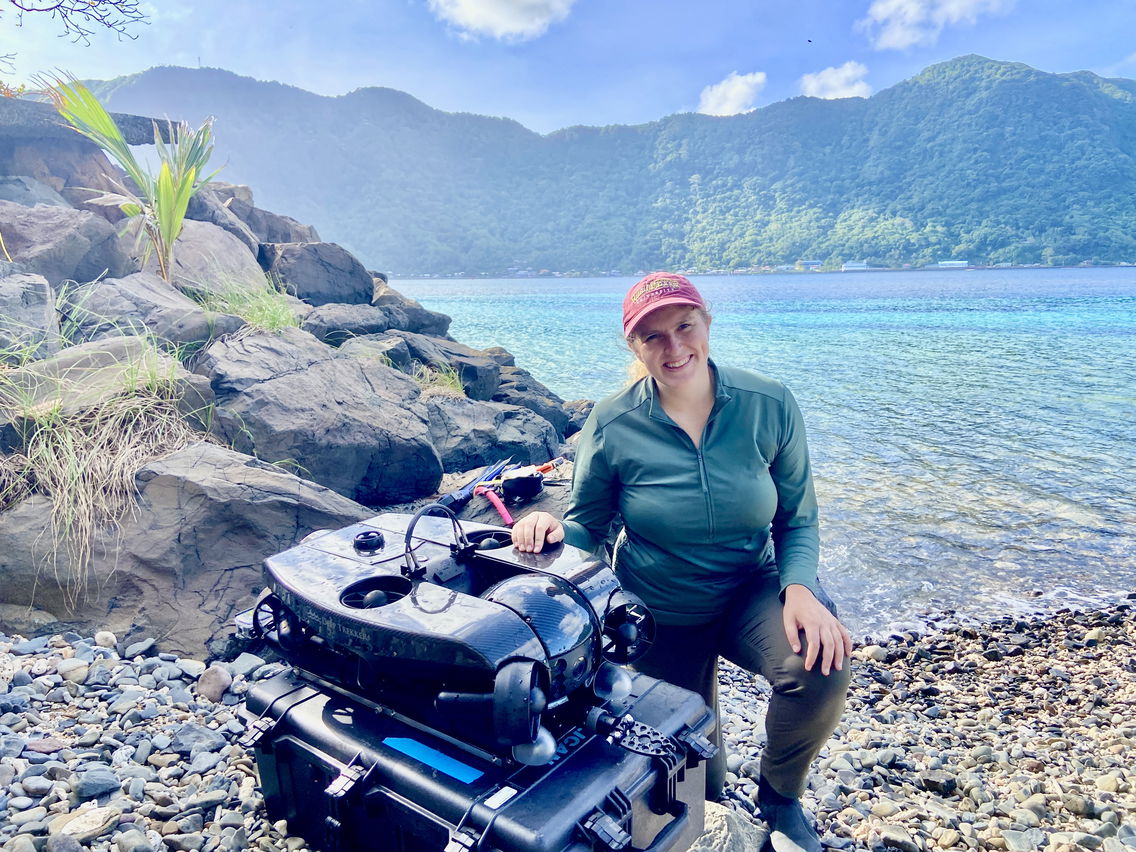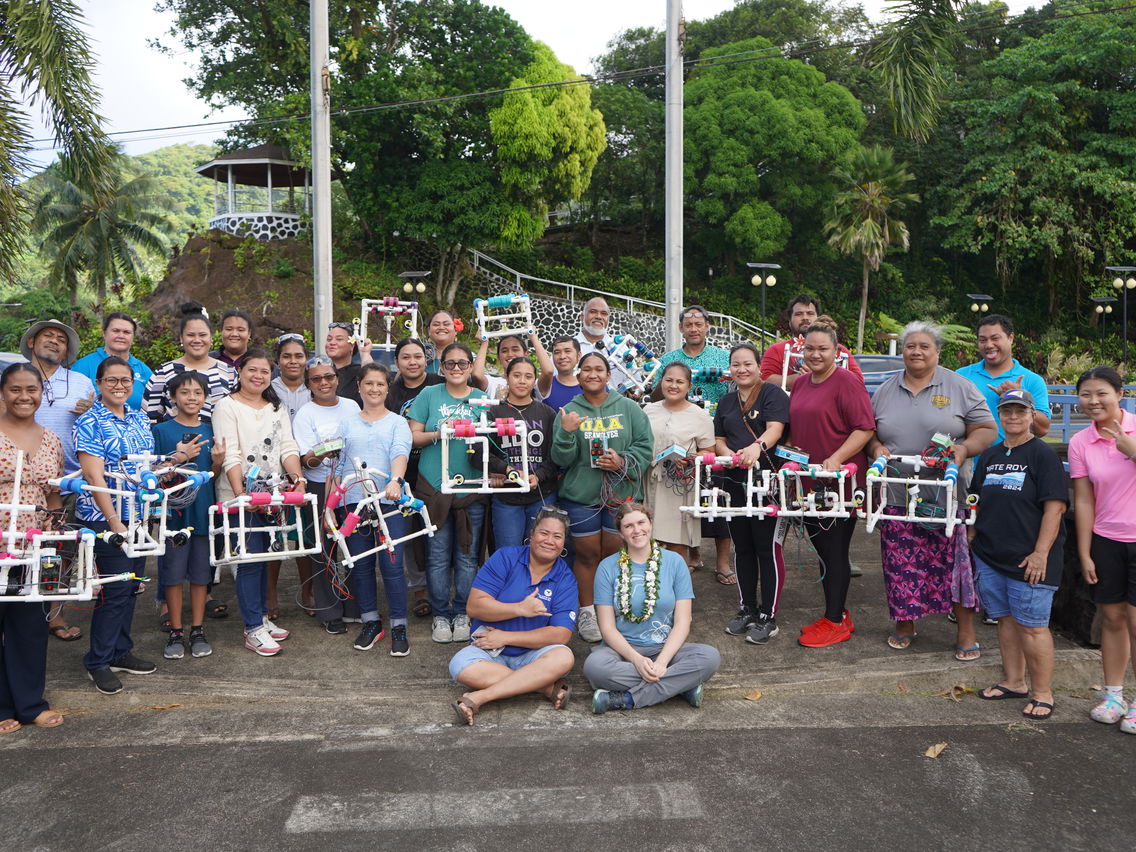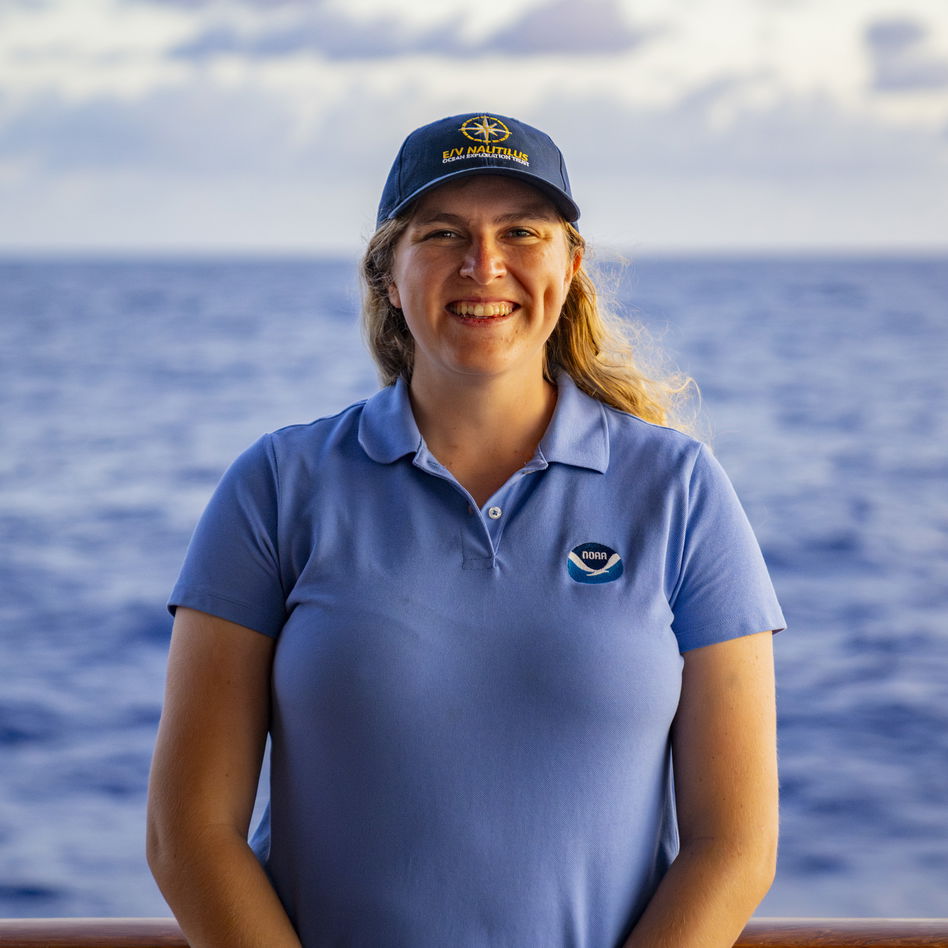Now, thanks to a research methodology Ashford developed alongside scientists at the National Marine Sanctuary of American Samoa, they will now be able to study these coral reefs at depths that were previously difficult and expensive for human divers to navigate.
“It was pretty cool to come in as an intern and contribute to something significant that will have a lasting impact on the sanctuary’s coral reef ecosystem monitoring,” Ashford says.
It’s just another chapter in Ashford’s rich Willamette story, with pages filled with her experiences traveling the world as a seasoned explorer of knowledge, pursuing remarkable research experiences with faculty and fellow students. She’s already used drones to examine archaeological sites in Greece and underwater robots to study ghost crab pots off the Oregon coast.
Last year, Ashford earned the prestigious Ernest F. Hollings Undergraduate Scholarship from the National Oceanic and Atmospheric Administration (NOAA) with the support of Willamette faculty and career development staff — making her one of only three students in Oregon to receive the award. She also received research funding from Willamette’s presidential scholarship, which provides financial support to students conducting summer research.
Following her Hollings internship, Ashford spent a month aboard the research vessel E/V Nautilus, owned and operated by famed oceanographer Robert Ballard, who discovered the wreck of the RMS Titanic. Sailing off the coast of American Samoa, Ashford deployed autonomous underwater vehicles (AUVs) to study and document the changing conditions in the deep sea ecosystems surrounding the Vailulu’u seamount.


